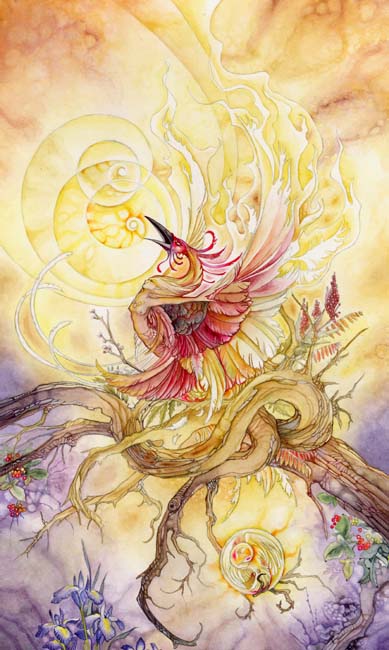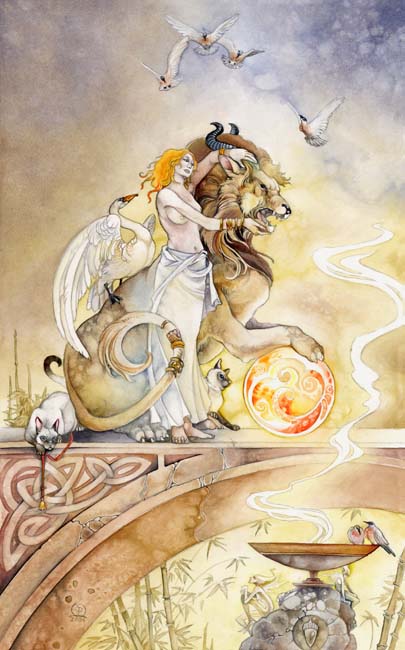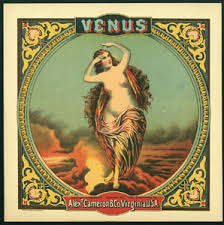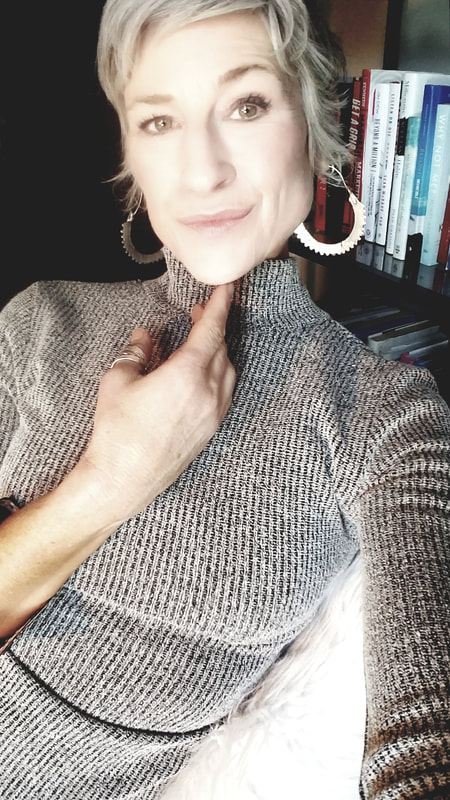"It is said that the swan is mute its entire life. Upon the threshold of death, however, it sings one achingly beautiful song that steals the final breath from its chest, and then it expires upon that ultimate sigh. It is the most heartbreakingly wrenching song of ending.
But the song of the phoenix...ah, the song of the swan cannot compare. When the phoenix sees death beckoning, she lifts her voice in a tragic song of pain, of rending, of sorrow...that yet cannot mask the most intense joy, for she knows that as the flames lick at her heart, the heat is quickening the egg in which her successor sleeps. Her deathflame is its lifespark; one is linked inextricably to the other. And thus she was tied to her predecessor, and she hers, and then she hers, to the beginning of time. She sits in her deathbed, upon her nest, and she submits to the inevitable hand of fate. As the fire burns searing hot and white, she spreads her wings and breathes her final song of expiration. Meaning: Closing the door to the past and opening a new one, going through transition, changing status, shedding the old and excess, bowing to inexorable forces and sweeping changes. The old must be set aside and burned away to make way for the new. The ancient story of the phoenix is one that is echoed and repeated in dozens of cultures. She is death and rebirth and life, encapsulated in a single symbol. Irises are associated with death, as Iris was the Greek goddess of the rainbow, which she used to travel down to earth with messages from the gods and to transport women's souls to the underworld. Deadly nightshade is a highly poisonous plant, symbol of deception, danger and death. And sumac, in the Victorian language of flowers, says, 'I shall survive the change.'" ~Barbara Moore, Shadowscapes Companion
1 Comment
In astrology Venus is most commonly known as "the love planet". The thing is, our modern day relationship to Venus is all f-d up. Venus was never meant to be worshipped as a submissive goddess, stripped of her power, unsure of herself, competing with other women and conforming to a bastardized image of the creative feminine. Oh no. Her ancestry is a long line of fierce ancient goddesses who represented both the dark and the light. The feminine creative force encompasses all things. Ancient goddesses like Astarte, Inanna, Ishtar and Kali are her predecessors.
Venus in our astrology chart represents how we connect and relate and what we attract to us and how. What Venus truly represents is our self-love, for the relationship to ourselves is the foundation that every other relationship is built upon, and that dictates how we create and what we attract to us. So then if our modern-day societal and cultural relationship to the archetype of Venus is as twisted as it is, does that mean that our very relationship to the divine feminine within us, to ourselves, and to the way we connect to each other, be it women to women or women to men or men to men, is equally twisted? I believe it does. There are many astrological indicators of how one relates in the natal chart - we can look to the 7th house regarding intimate relationships, the 5th regarding romances and affairs and creative energy, and even the asteroid Juno for the nature of long-term relationships and who we are attracted to as long-term partners, but the position of Venus shows us the fundamental nature of our relationship to ourselves, and what obstacles we may face with that and therefore our relationship with others, which is the most important part of all, because it is the foundation of ALL of our relationships. The Sumerian myth of Inanna's Descent is often associated with Venus' retrograde cycle, which happens every 8 years. The myth is basically telling the story of Inanna's journey to become "whole unto herself". She leaves the comforts of her kingdoms and goes to visit her sister who is queen of the underworld. Her sister is her shadow self - she represents those traits that we don't like to acknowledge within ourselves. Yet if we don't confront and acknowledge those traits, then we can never fully accept, and therefore love ourselves and then we project things out onto the other people with whome we have relationships. Inanna makes this journey and literally dies and is reborn. This is symbolic because when we achieve a new level of consciousness brought about by confronting something that has been hidden deep within us, the old self that we were "dies" and we are reborn anew with this new knowledge. With her new consciousness she is able to return to her kingdom literally whole unto herself, and see old relationships with new eyes and make new choices, as sovereign ruler of her inner landscape as well as outer. THIS is the gift that acknowledging our Venus in our astrological chart can give us. If you are interested in learning more about your astrology, message me to schedule an appointment! |
Archives
June 2024
Categories |





 RSS Feed
RSS Feed